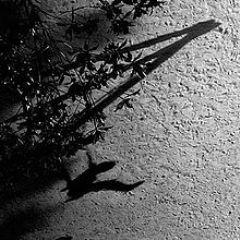Max Richter - The Blue Notebooks (2004)
Max Richter - The Blue Notebooks (2004)

1. "The Blue Notebooks" 2. "On the Nature of Daylight" 3. "Horizon Variations" 4. "Shadow Journal" 5. "Iconography" 6. "Vladimir's Blues" 7. "Arboretum" 8. "Old Song" 9. "Organum" 10. "The Trees" 11. "Written on the Sky"
Though his evocative debut album Memoryhouse introduced Max Richter's fusion of classical music, electronica and found-sounds (a style he calls "post-Classical"), it's his follow-up, The Blue Notebooks, that really showcases the style's -- and Richter's -- potential. The album's ten pieces were inspired by Kafka's Blue Octavo Notebooks, and quotes such as "Everyone carries a room about inside them. This fact can even be proved by means of the sense of hearing. If someone walks fast and one pricks up one's ears and listens, say at night, when everything round about is quiet, one hears, for instance, the rattling of a mirror not quite firmly fastened to the wall," which are read by actress Tilda Swinton, define the spare, reflective intimacy of The Blue Notebooks. The album is simpler than Memoryhouse, with a smaller ensemble of musicians playing on it and a shorter running time, but its restraint makes it a more powerful work -- it's so beautiful and fully realized that it doesn't need to be showy.
As other reviews have mentioned, Richter tends to be a more traditional-minded composer than influences like Brian Eno, Philip Glass and Steve Reich. However, his sound works so well and seems so natural because he's not trying to be overtly experimental; the album ranges from pieces with little or no electronic elements, such as the piano-driven "Arboretum," to "Old Song," which is based on a busy, chilly beat that sounds like dripping water. Richter's music embraces all of the sounds that had an impact on him, but more important is the emotional impact that The Blue Notebooks has on its listeners; despite its high-concept origins, it's quite an affecting album. The warm-hearted piano melody on "Horizon Variations" and the delicate, somehow reassuring-sounding string piece "On the Nature of Daylight" both sound vaguely familiar, and are all the more haunting for it. Most striking of all is "Shadow Journal," which begins with hypnotic, bubbling electronics, Swinton's crisp voice and a piercingly lovely violin melody and then brings in harp and an electronic bassline so low that it's almost felt more than it is heard. The piece sounds so much like thinking, like turning inward, that the cawing birds at the end of the track bring a jarring end to its reverie.
The field recordings that run through The Blue Notebooks heighten the sense of intimacy, and occasionally, eavesdropping. On "Organum," the distant piano and outdoor sounds feel like listening to somebody else listen to the music; meanwhile, the ticking clocks, clacking typewriter and street traffic on the title track help conjure up that room that everyone carries about inside them. The Blue Notebooks is a stunning album, and one that should be heard not just by classical and electronica fans, but anyone who values thoughtful, subtly expressive music. ---Heather Phares, Rovi
download: uploaded yandex 4shared mediafire solidfiles mega filecloudio nornar ziddu
Last Updated (Monday, 07 April 2014 19:32)








